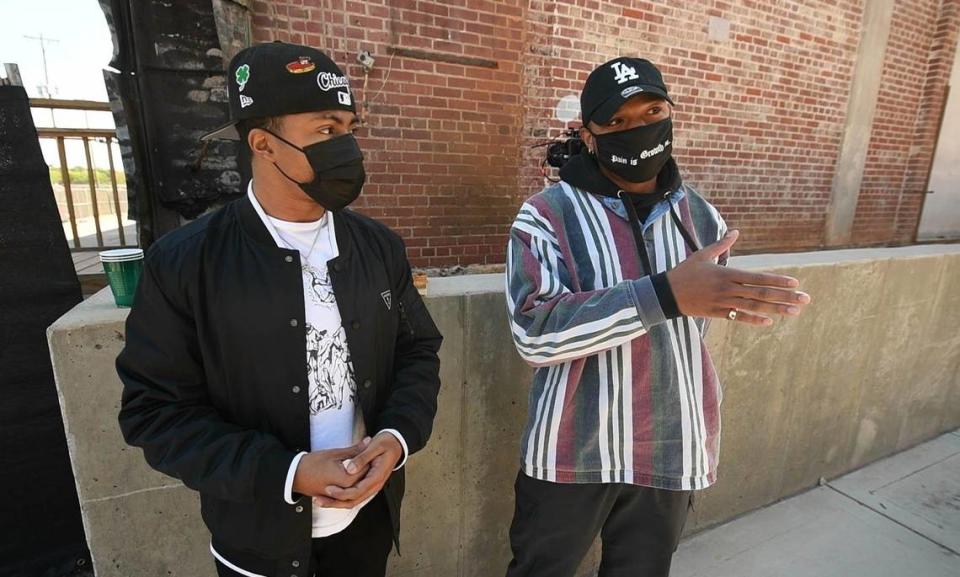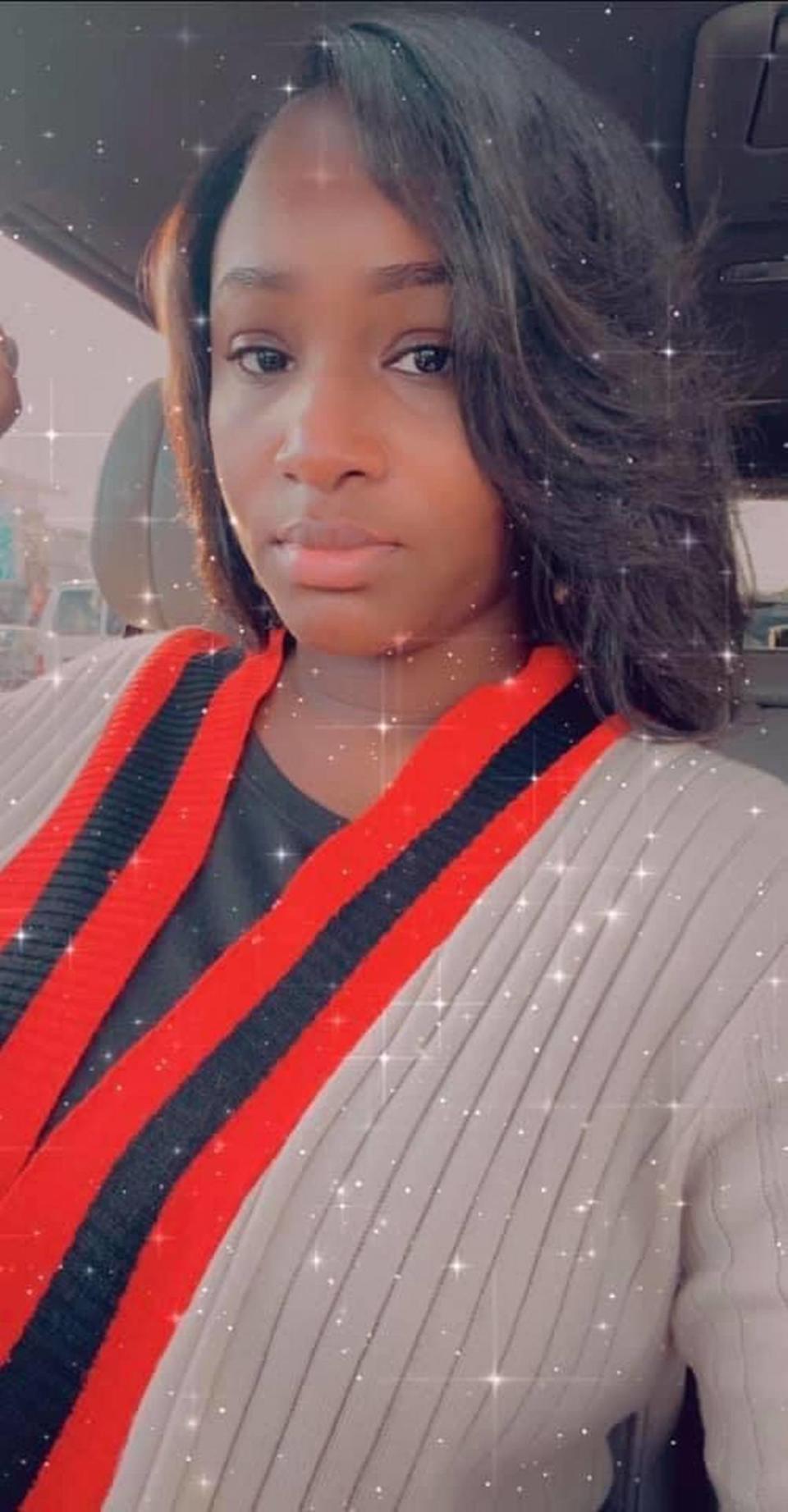A thousand miles from Minneapolis, many in Charlotte fed up with pace of police reform
When Pat Williams’ mother received a call that her husband had been beaten by police in San Francisco, a 12-year-old Williams could hear the pain and the anguish in her voice.
Forty-one years later, Williams still remembers the blister bubbles and the black marks on his father’s hands from where they had been handcuffed. The police had left his sister and baby brother in the street when they took his father to jail.
“I’ve watched the system operate with impunity,” he said.
Williams — now 53 and living in China Grove, N.C., not far from Charlotte — thinks about the role of police brutality in his own life when reflecting on this week’s news that a jury in Minneapolis found ex-cop Derek Chauvin guilty of murdering George Floyd.
In the wake of the verdict, the Observer spoke with several Charlotte-area residents who say more reforms are needed to address systemic racism in policing and society.

When Williams was 16, he said, he and a friend were pulled over by the police, though they were not the people that the officers were looking for.
His friend told him not to move or breathe — Williams had dots on his forehead from the guns the officers were brandishing. It was dusk, and nearly a dozen weapons were pointed at them. Williams was terrified.
“From a standpoint of us getting justice over our term in America, we have very little of it,” Williams said.
WIlliams, who works as a bail agent, said he would like to see a better vetting process to weed out bad cops, and he said police and the community need to get to know one another.
Jacquoia Moore
When Jacquoia Moore and her brother were pulled over by police in Charlotte a decade ago, the officers instantly pointed guns at them and started yelling commands at them. She said they were following the police orders, but their guns were still drawn.
“I just knew it was over,” she said. She said the police were actually looking for a car that looked similar to hers.
After the incident, Moore said she filed a complaint, but never heard back from the department or anyone else.

Moore, a 39-year-old Charlotte resident, said police need to take complaints from citizens more seriously. She felt overjoyed by the Chauvin verdict, but said the public needs to continue to push for accountability from law enforcement.
And she said people need to stop placing the blame on the person who was killed in order to make excuses for police behavior.
“It’s time for change,” she said. “It’s been happening for years, and they just keep getting off.”
Diamante McKelvie
Diamante McKelvie, a senior at UNC Charlotte majoring in Africana Studies, said he is glad Chauvin was found guilty but doesn’t feel like true justice was served.
He pointed to statistics that show it is rare for police officers to be convicted for on-duty shootings.
According to a report from researchers at Bowling Green State University in Ohio, there have been 104 non-federal law enforcement officers arrested on murder or manslaughter charges after shooting and killing someone on duty between 2005 and mid-2019. Only 35 were convicted of a crime, the report found, and just four were convicted of murder.
McKelvie said the system was created to target Black and brown people, noting the history in which slave patrols were some of the first policing institutions in the South. He wants to see those systems dismantled, such as the war on drugs and the militarization of police forces.
And he said there should be a way for mental health professionals to deescalate certain situations, or for police to be better trained to respond to mental health issues.
“Police are supposed to be here to protect, and a lot of people don’t feel like that protection is given,” McKelvie said. “It just feels like their authority is really tyrannical.”

Justin Hicks
Justin Hicks, a 23-year-old visual artist, said he was relieved to see justice served in the Chauvin case. But he said the majority of officers who kill people on the job only get a slap on the wrist.
While many say the system is rigged or messed up, Hicks said it has always been designed to harm Black and brown people.
“That stigma that we have to deal with, that we still have to face, is still very real, is still very traumatic,” he said.
Hicks said police should implement deescalation tactics so that guns are the last resort, not the first.
“It’s been a systemic thing that’s been created and generated for so many years, and that’s not something that’s just going to be undone overnight,” he said. “It’s going to have to take a lot of work from our officials, from the government, from all of us doing our part in every way that we can.”
Racial equity talks in Charlotte: Not deep. Not justice. Not enough, advocates say.
Sabrina Lyles
Charlotte resident Sabrina Lyles first started talking to her son about how to carry himself as a Black man to avoid being killed by the police when he was 6. She has to tell her son, who is now 14, not to walk down the street with a watergun, for example.
“As a Black parent this is a conversation I have to have with my son, because I don’t want him to enter into the world blindly,” she said. “Because in his eyes, he is just a kid. But I have to tell him that there’s some people that don’t look at you like that.”
Lyles, 32, said she’s hopeful that Chauvin’s conviction is a sign that things are changing and that Black lives do matter. She said she doesn’t want police killings to be ignored anymore.

Lyles watched Floyd cry out for his mother, and said the same thing could have happened to her child.
“I have a son and I’m fearful, he goes out everyday and I don’t know what might happen,” she said. “Because to somebody he might be this or that, but to me he’s my child and his life matters.”
Darian Johnson
Charlotte native Darian Johnson was recently unloading his AR-15 from his car and bringing it into his Davidson County house when the mother of one of his white neighbors called the police.
The police came, checked his carry permit and left. But he said it’s an example of how he needs to be aware of his Blackness. Nearly every one of his neighbors owns weapons — but they are white.

“When W.E.B Du Bois talked about the double consciousness, being aware of your Blackness at all times, I think that’s a matter of survival in America,” he said during an interview at Camp North End.
Johnson, who is in his third year at Winston-Salem State University, supports abolishing the police. He is quick to point out that that does not mean anarchy. There are other methods of policing, Johnson said, and many other countries do not have “armed paramilitary police.”
He also said he does not believe police should be the ones investigating their own conduct. Johnson said small, individual reforms will not be enough to change a whole system.
“We’re talking about an institution of power that is designed to disenfranchise poor people and minorities,” he said. “It’s three dimensional. It’s not just one facet of this thing that we can tweak and everything else will be okay.”
Charlotte area leaders react: ‘Lady Justice has shown up’ with Chauvin guilty verdict

 Yahoo Movies
Yahoo Movies 
